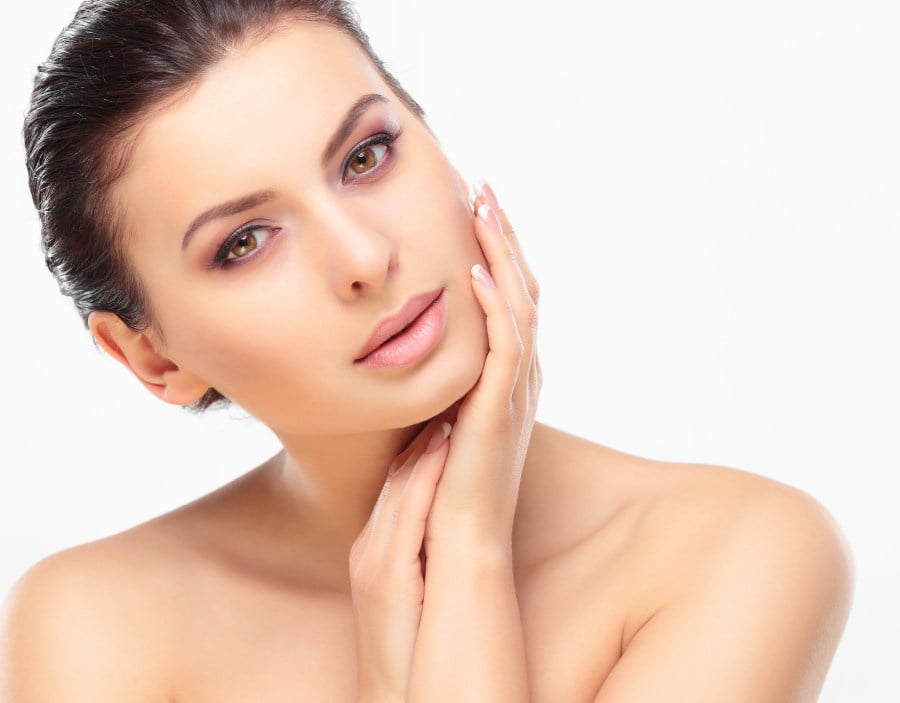Do You Believe Any Of These Common Beauty Myths?

What does critical thinking have to do with skincare, haircare, and nail care? Much more than you think. In your quest to improve the health and beauty of your skin, hair, and nails you’ll probably visit beauty salons, read magazines, and skim blogs, where you’ll be exposed to information, disinformation, or misinformation.
Unless you can distinguish between them, you’ll always be seeking but never finding the best products or beauty routines. Even something as simple as figuring out how to remove makeup can be bewildering if you don’t follow the right tips.
So, how do you find the right information? Learn how to avoid disinformation or misinformation. But, since it’s difficult to discern whether something is disinformation or misinformation– that is, deliberate or innocent misdirection– let’s group them and call them myths.And, since you don’t have enough information on something to tell whether it’s true or not, your best course of action is to talk to a health and beauty expert.
Let’s say, you need some advice on skincare. Should you just do a Google search? No, it’s not enough. Also speak to aesthetician, a professional who benefit by sharing their knowledge and experience with you. Unfortunately, unbiased, caring experts are not easy to find. So, look for someone like Natasha Blackett, the founder of Rose Health at spa810 aesthetic treatments, who has a refreshing philosophy—only after actively listening to her patients and understanding their concerns does she suggest the best ways for them to achieve their ideal outcomes.
3 Common Myths about Skin, Care, and Nail Care
1. A Common Skincare Myth
The myth: Since getting a suntan can lead to premature aging and skin cancer, a safe alternative is to use a tanning booth that doesn’t contain UVB rays.
This myth appears plausible because it’s an artful blend of something that’s true with something that’s false. It’s true that excessive sunbathing can cause your skin to lose moisture and wrinkle faster and there is evidence-based research on excessive sun exposure and skin cancer. And it’s also true that there are tanning booths that don’t have UVB rays. But it’s not true that tanning booths are safe.
According to an article in WebMD that interviewed Jenny Kim, MD, an assistant professor of medicine and dermatology at the David Geffen School of Medicine at University of California at Los Angeles, tanning booths aren’t safe. Although they don’t have UVB, which cause sunburn, they still have UVA rays, which can trigger both premature aging and skin cancer.
2. A Common Haircare Myth
The myth: Your hair sheds in the shower because you shampoo it.
This myth appears plausible because you notice a direct correlation between shampooing and hair clogging up the drain.
According to a Health.com article on hair loss that interviewed Dr. Piliang, MD, dermatologist and hair specialist at the Cleveland Clinic, your hair would fall out anyway…although in a less obvious way. By cutting back shampooing, you’re only making things worse—allowing oil buildup to trigger inflammation, which, in turn, inhibits hair growth. The problem is stress. Dr. Piliang recommends adding stress relieving natural oils to your shampoo, specifically a blend of lavender oil, tea tree oil, and rosemary oil, which will calm you and may also stimulate hair regrowth.
3. A Common Nail care Myth
The myth: it’s harmless to cut your cuticles.
This myth appears plausible because nail technicians routinely cut cuticles and the idea of them as superfluous is widespread.
According to a Bustle article on healthy nails that did an email interview with Lauren B., a nail expert of the polish brand Lauren B. Beauty, cuticles play an essential role in nail health. “Cuticles are part of your skin and are there to keep bacteria out and prevent infections,” wrote Lauren. “When you trim them away, you open up your skin and risk infection or nail problems.” She believes that it’s enough to moisturize cuticles often enough to keep them soft.
Mythbusting Made Easy
In order to bust myths, you need to be able to discern the difference between information, disinformation, and misinformation.
Information is helpful, useful, and insightful. It tells you what to do. Disinformation misguides you, persuading you to buy products or use services that help increase sales by exaggerating benefits. It’s basically slick advertising… like a beautiful actress endorsing a product that she has never used. Finally, misinformation is the most difficult to detect. Although you think you’re getting reliable recommendations, your informant is passing on a meme, hawking a myth.
So, in the final analysis, to get to the truth about a product, treatment, or routine, don’t accept beauty tips at face value. First, do a Google search to find out more and then confirm or disconfirm your ideas with some expert advice.